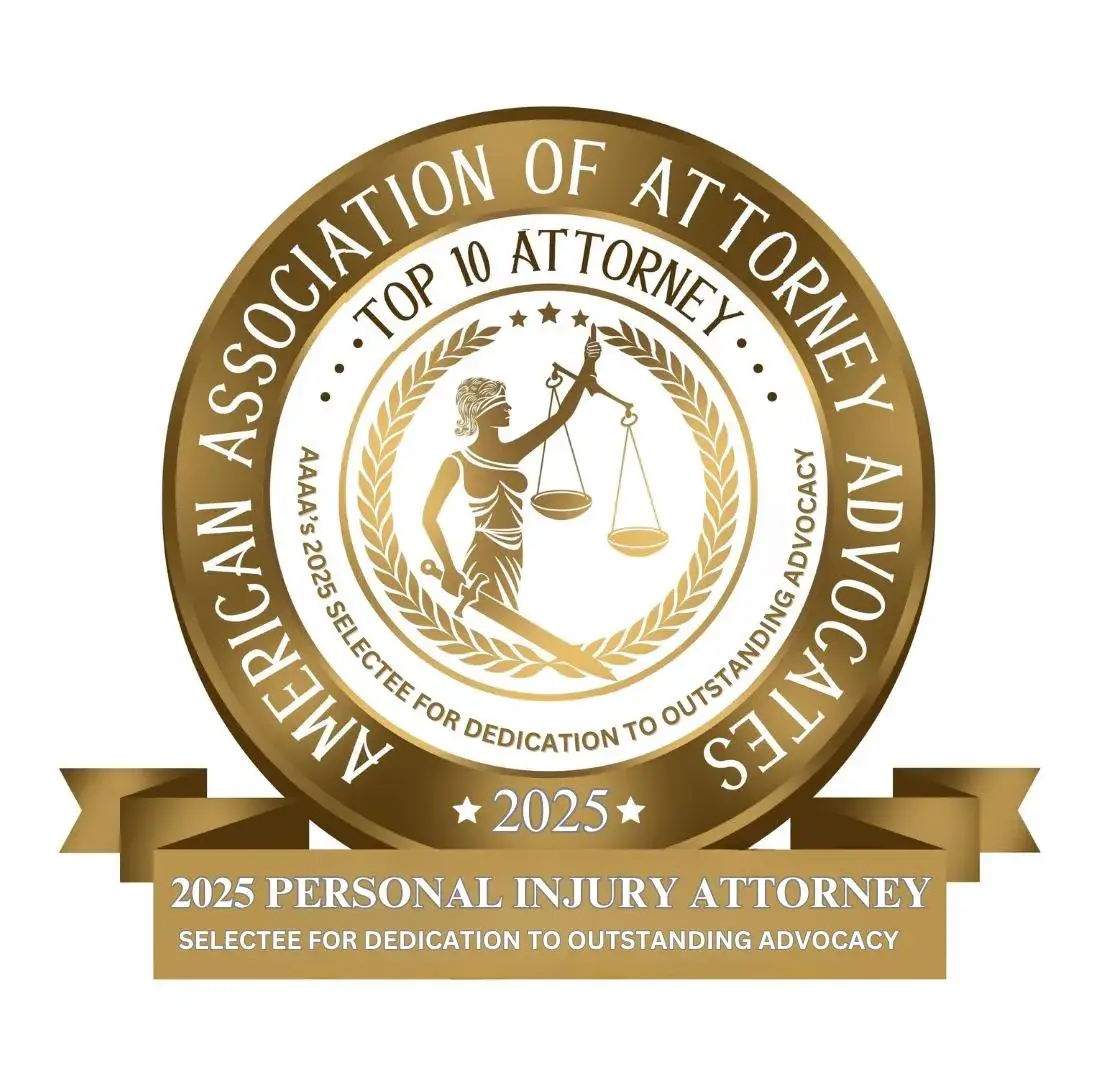
When Is It Too Late to Sue for Medical Malpractice in New Jersey?
In New Jersey, you generally have two years from the date of the medical error to file a lawsuit. However, the start date for this two-year clock is not always straightforward. For many, especially if the harm wasn’t immediately obvious, the clock doesn’t start until the injury is discovered—or reasonably should have been discovered. This is a legal concept called the “discovery rule.”
The question of when it is too late to sue for malpractice is one of the most common and stressful concerns we hear. If you are worried about a deadline, contact out New Jersey medical malpractice lawyers at Maggiano, DiGirolamo & Lizzi, P.C. today for a no-cost consultation at (201) 585-9111.
Table of contents
- The Two-Year Rule: New Jersey’s Statute of Limitations
- The Discovery Rule: What if You Didn’t Know About the Injury Right Away?
- Are There Other Ways the Clock Can Be Paused?
- The “Affidavit of Merit”: A Second, Hidden Deadline
- How Do These Rules Apply to Your Situation?
- What You Can Do From Home Right Now
- Answering Your Questions About New Jersey Malpractice Deadlines
- Your Timeline for Justice Starts Now
The Two-Year Rule: New Jersey’s Statute of Limitations
New Jersey law sets a clear time limit for filing most personal injury claims, including those for medical malpractice. This law, known as a statute of limitations, is found in the state code under N.J.S.A. 2A:14-2. It establishes a two-year window to take formal legal action.
Think of this as a countdown timer. For many types of injuries where the harm is immediate and clear, that timer begins the moment the medical negligence occurs. For example, if a surgeon operates on the wrong knee on a Tuesday, the two-year timer starts ticking that same Tuesday.
The reason for this deadline is straightforward: statutes of limitations exist to ensure claims are brought when evidence is still fresh and the memories of witnesses have not faded over time.
But medicine is complex, and the harm caused by a mistake is not always a sudden event. It can be a slow burn, a problem that doesn’t surface for months or even years. The law has a way of accounting for that.
The Discovery Rule: What if You Didn’t Know About the Injury Right Away?
What happens when the mistake is hidden? What if a sponge is left inside you during surgery, but you don’t feel pain for a year? Or what if a pathology report was misread, and a dangerous condition was allowed to worsen silently? The law recognizes this isn’t fair.
This is where the discovery rule comes in. It’s a legal principle that says the two-year clock doesn’t start ticking until you discover two things:
- You have been injured.
- You have reason to believe the injury may have been caused by someone’s fault.
This rule acts as a safety net, acknowledging that a person cannot be expected to file a claim for an injury they do not know exists. It shifts the starting line from the date of the negligent act to the date of reasonable discovery.
Real-World Scenarios
Consider these situations where the discovery rule could apply:
- The Misread Scan: A radiologist misses a cancerous tumor on a scan. You only find out two years later when the cancer has advanced and you seek a second opinion. Your clock likely started when you received the new, correct diagnosis, not on the date of the original misread scan.
- The Defective Implant: A hip replacement fails prematurely four years after surgery. The clock may start when another doctor informs you that the specific implant model was faulty and that this information was known within the medical community.
The discovery rule is a cornerstone of fairness in New Jersey medical malpractice law, ensuring that the deadline to act is based on knowledge, not just the calendar.
Are There Other Ways the Clock Can Be Paused?
Beyond the discovery rule, there are other specific circumstances where the two-year countdown can be legally paused. This is a legal concept known as “tolling.” Tolling stops the statute of limitations clock from running for a period of time, preserving your right to file a claim.
Key Situations Where the Clock Pauses
- For Children: If the victim of malpractice is a minor, the two-year clock is typically paused. For most injuries, the clock does not start until the child’s 18th birthday, giving them two years from that point to file a claim.
- A Note on Birth Injuries: Claims related to injuries that happen at birth are more complex. For injuries sustained at birth, a lawsuit must generally be filed before the child’s 13th birthday. Given the nuances, it is important to speak with a lawyer to understand the specific deadline in these cases.
- For Someone Mentally Incapacitated: If a person is legally determined to be mentally incompetent or lacks the capacity to understand their rights, the clock may be paused until their competency is restored.
- Fraud or Concealment: If a doctor or hospital knowingly hides their mistake, the clock can be paused. For example, if they alter medical records to cover up an error, a court may prevent them from using the statute of limitations as a defense. This ensures that professionals cannot benefit from their own deception.
The “Affidavit of Merit”: A Second, Hidden Deadline
Filing the lawsuit on time is only the first step. New Jersey law has another time-sensitive requirement that essentially functions as a secondary deadline.
Within 60 days of the defendant (the doctor or hospital) filing their official response to your lawsuit, your attorney must file an “Affidavit of Merit.” The law, N.J.S.A. 2A:53A-27, was designed to ensure that malpractice claims have merit before they proceed.
In simple terms, this is a sworn statement from a qualified medical professional in the same field. The statement confirms there is a reasonable probability that the care you received fell below accepted professional standards.
Think of it this way: filing the lawsuit is like unlocking the main door to the courthouse. The Affidavit of Merit is a second, time-sensitive key you need to open the inner door to proceed. Forgetting this key or being late can get your case dismissed, even if you filed the initial lawsuit perfectly on time. This is a procedural detail we manage for our clients to ensure every deadline is met.
How Do These Rules Apply to Your Situation?
This is where the details matter. Let’s look at how these timelines play out in different communities and situations that we see right here in Bergen County.
Scenario 1: A Surgical Error in Hackensack
A routine gallbladder surgery at a local hospital results in a perforated bowel. The pain starts immediately, but the doctor dismisses it as normal post-op discomfort. It takes a week of worsening symptoms and a trip to the ER to discover the true cause.
When did the clock start?
Not necessarily on the day of the surgery. It more likely began on the day the perforated bowel was diagnosed in the ER, as that is when you had a clear reason to believe an error occurred. This is a classic example of the discovery rule in action.
Scenario 2: A Delayed Diagnosis in a Fort Lee Clinic
A patient, whose primary language is Korean, repeatedly visits a doctor for a persistent cough. The doctor diagnoses it as bronchitis. A year later, a family member who is fluent in English helps schedule a second opinion, and an X-ray reveals advanced lung cancer that should have been investigated much earlier.
When did the clock start?
The two-year clock would likely begin from the date of the cancer diagnosis. We understand that navigating medical appointments is challenging, especially if there are language barriers. In our communities like Fort Lee and Palisades Park, having a family member advocate for you or getting that crucial second opinion are important steps that might sometimes be the key to uncovering the truth.
Scenario 3: A Birth Injury in Teaneck
A child is born with cerebral palsy. The parents are told it was an unavoidable complication of childbirth. Three years later, they connect with a support group for parents of children with cerebral palsy, a resource they found through their synagogue in Teaneck. They learn from other families that the condition is sometimes linked to a lack of oxygen during delivery, which could have been prevented.
When did the clock start?
They now have reason to suspect medical negligence. The “discovery rule” may apply to their own potential claim. More importantly, the statute of limitations for their child’s claim would not even begin to run until the child’s 18th birthday, though for birth injuries the deadline is often the child’s 13th birthday. This gives the family time to understand what happened without the immediate pressure of a two-year deadline.
What You Can Do From Home Right Now
This is not legal advice, but a practical way to prepare for a conversation with an attorney.
Do This, Not That:
- Don’t: Worry about finding the “perfect” document or feeling like you need everything before you can make a call.
- Do: Start gathering any medical paperwork you have. Put it all in one folder or box. This includes bills, discharge papers, pharmacy receipts, and letters from your insurance company.
- Don’t: Try to interpret complex medical records on your own. That is a job for medical and legal professionals.
- Do: Write down a simple timeline of events. Start with your first visit to the doctor and end with today. Note dates of appointments, phone calls, and when you first noticed something was wrong. This is your story, and it is the most important piece of information.
Answering Your Questions About New Jersey Malpractice Deadlines
What if I signed a consent form before the procedure?
A consent form is an acknowledgment of the known and disclosed risks of a medical procedure. It is not a waiver of your right to competent care. It does not give a doctor permission to be negligent. If the care you received fell below the accepted medical standard, signing a form does not prevent you from having a case.
Does the deadline change if the malpractice happened at a public or county hospital?
Yes, and this is extremely important. Claims against government entities in New Jersey, including many public or county hospitals, fall under the Tort Claims Act. This law has much shorter notice requirements, sometimes as short as 90 days from the date of the injury or its discovery. If a county hospital or public clinic like those affiliated with Rutgers University was involved, speak with an attorney immediately.
My parent was the victim of malpractice but has since passed away. Is it too late?
No. If the malpractice led to a death, the family may be able to file a wrongful death lawsuit. In New Jersey, the statute of limitations for wrongful death is generally two years from the date of death. This allows the family to pursue justice on behalf of their loved one, even if the original victim can no longer do so.
What if my English isn't perfect? Will that affect my claim?
Absolutely not. The quality of your medical care and your right to seek justice do not depend on your English proficiency. Our firm is committed to serving the diverse communities of Bergen County, from the large Korean-speaking population in Fort Lee and Palisades Park to the vibrant Hispanic communities in Hackensack and Englewood. We work with qualified translators to ensure we understand your story completely and that you understand every step of the process.
What about malpractice that happened during a telehealth (video) appointment?
The same general rules apply. The COVID-19 pandemic saw a rise in telehealth, but the location of the appointment does not change the standard of care a doctor is required to provide. The two-year statute of limitations and the discovery rule would still be the guiding principles for a mistake made during a virtual consultation.
Your Timeline for Justice Starts Now
The laws are designed with built-in exceptions to protect those who could not have known they were harmed. The most important deadline is the one you set for yourself—the day you decide to seek answers. Taking that first step is how you ensure your story is heard and your rights are protected.
Call Maggiano, DiGirolamo & Lizzi, P.C. at (201) 585-9111 or contact us online to begin the conversation. Your consultation is free and confidential.



















